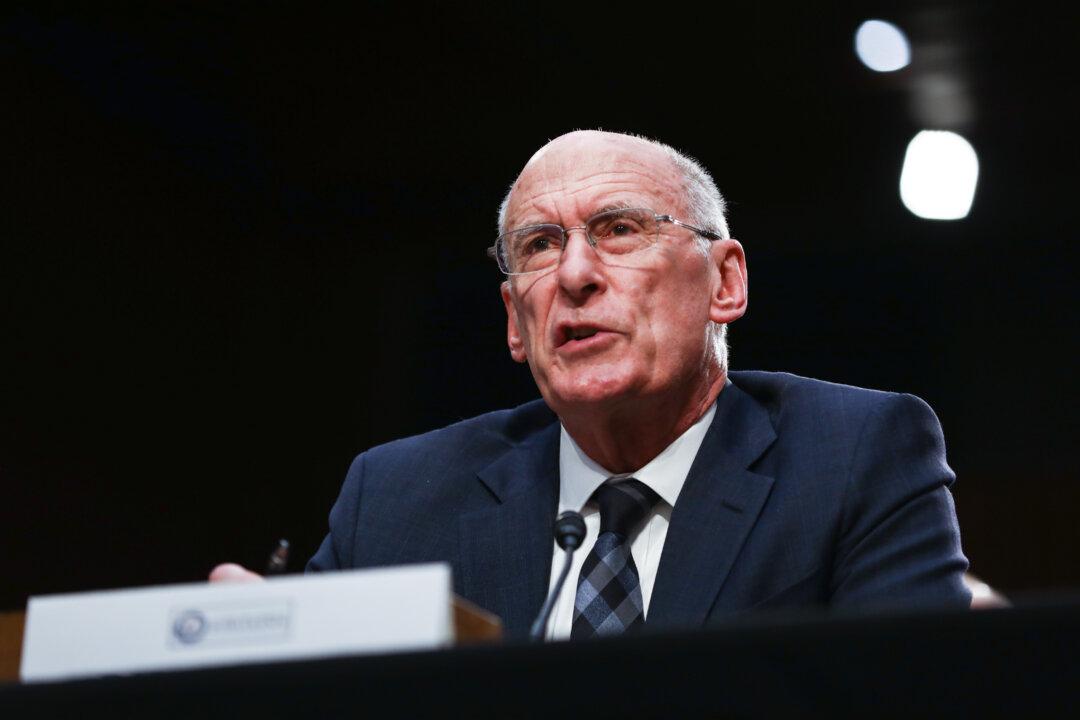China poses a serious and growing threat to the United States, particularly in the field of technology, U.S. intelligence leaders told a Senate hearing Jan. 29.
“Chinese pursuit of intellectual property, sensitive research and development plans, and U.S. personnel data remains a significant threat to the United States government and the private sector,” Director of National Intelligence Dan Coats testified at the Senate Intelligence Committee’s annual hearing on worldwide threats. The directors of the CIA, FBI, and other top intelligence officials also testified.





